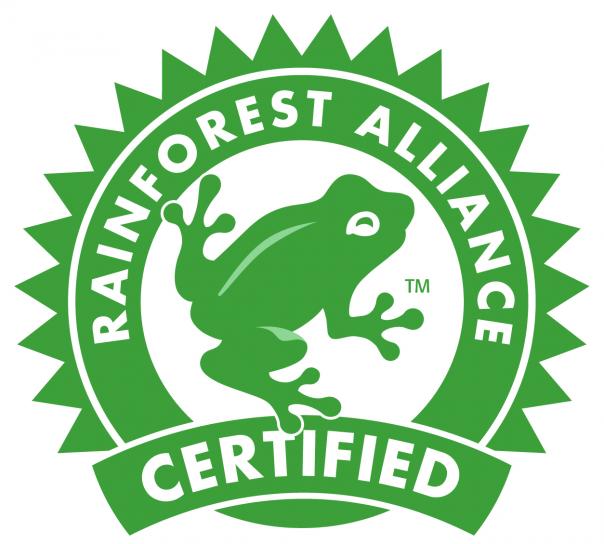
With the Earth’s resources rapidly depleting, combined with an ever-increasing consumer demand to know where and how our food is sourced, dialogue between consumers, businesses and farms has never been more important.
By offering a sustainable option on the beverage menu – be it coffee, tea or hot chocolate – baristas can not only address their own social responsibilities, learning about how, where and why sustainable farming is important, but also take this to their customers.
We know more and more consumers want the ethical option, but by telling customers about the difference their choice has just made to the environment and to the farmer who farmed the beans, takes the coffee shop experience to an entirely different level. Not only are you providing a good service, you’re making the customer feel good about themselves too.
When consumers see the little green frog seal that represents the Rainforest Alliance certification programme, they are guaranteed that the coffee, tea or hot chocolate they are drinking has been grown on a farm where forests are protected, rivers, soils and wildlife are conserved; and workers are treated with respect, paid decent wages, properly equipped and have access to schools and health centres.
The industry is on a sustainable journey - right across the supply chain - from farmer to consumer. Each component has its part to play in ensuring that we create a more sustainable global economy. From educating the farmer to farm smarter, to engaging with businesses to examine their green credentials, to influencing consumers to make the right choices.
Sustainability is becoming more mainstream; and if the barista in the local coffee shop can engage a few of its customers to choose the sustainable option and explain why, then demand will continue to grow. In turn the environment and the farmers and their families who depend on it for their livelihoods will benefit.
With farmers wanting to ensure that their children have a future livelihood, and consumers thinking more about the food they consume, businesses have the important role of bringing the two together.
This role is one of power: the power to make a difference to the environment, the farmer and the consumer; and the power to increase the bottom line. It therefore clearly makes good business sense for the barista to truly understand both the origins of the coffee they are serving and what their customers really want.